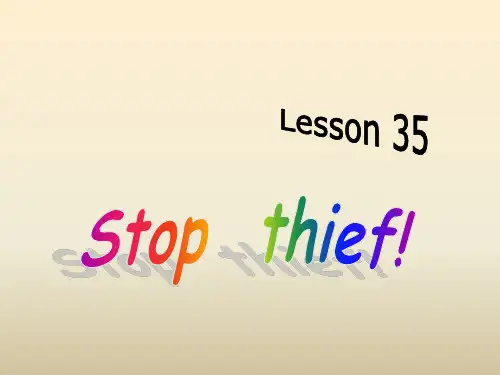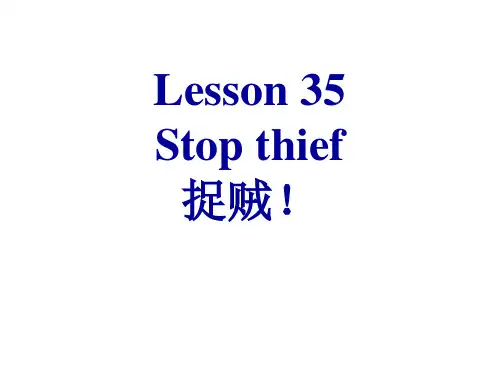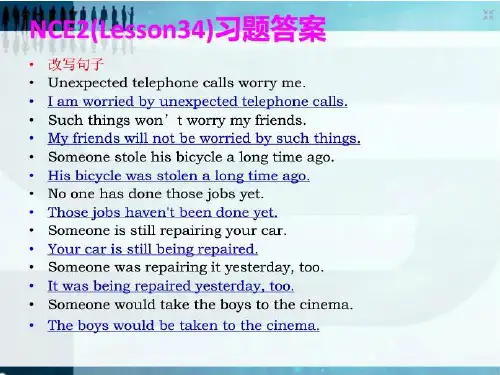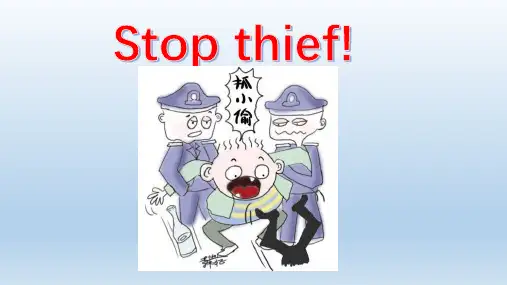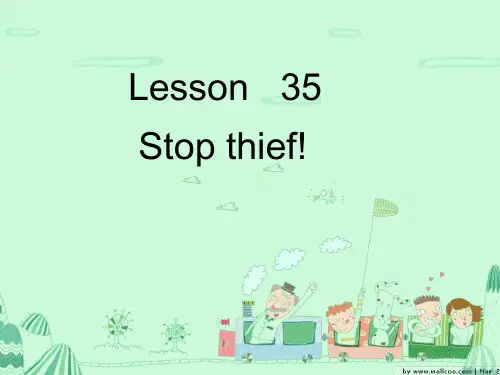• see和一些感知动词(如smell, feel, hear, watch, notice等)可以用 在动词+名词/代词宾语+不带to的不定式结构(省略to)中,如果全 过程用do,过程中的一瞬间用doing: • see sb. do sth. 看见某人做某事(强调全过程) • I see them dance. (看了全过程) • see sb. doing sth. 看见某人正在做某事 • I see them dancing . (只看了一部分) • hear sb doing sth.,hear sb. do sth. • 4、The one with the money got such a fright that he dropped the bag. • with 一旦出现在名词或代词后就做定语, 出现在动词之后做状语 • He came in with a book. (作状语) • The boy with a book came in. (作定语) • get a fright 吓了一跳 • so+形容词(副词)+that…/such+(修饰词或形容词)+名词+that… 如 此……以致…… • 一旦有名词, 就认为形容词修饰的是名词, 前面的词也修饰的是名词 • drop vt. 由于抓什么没抓住不小心掉下去 (sb. drop sth.) • I drop the chalk. fall vi. 从上往下落 (sth. fall) drop the money / the money fall The chalk is falling.
Text analysis
• 1、A short while ago, however, he became a bus driver and he was not regretted it. • a short while ago=a short time ago 不久以前 • while作名词表示“一会儿,(一段)时间”时常与a连用,有时也与 the,this等连用: • They haven’t seen each other for a long while. • Have you been in Australia all this while? • I saw her a short while ago. • however可以放句首, 可以放句中;如果一个词两边有逗号,证明 这个词是插入语 • 2、He is finding his new work far more exciting. • find 可以用一般现在时态, 可以用进行时态 • He is finding his trip very exciting. • far more exciting 更有趣(在形容词和副词的比较级与最高级前 面,可以用far(相当much)来表示强调,译为“很,大大的”) • It’s far/much colder today than it was yesterday. • This is (by) far the most expensive bicycle in the shop. 3、When he was driving along Catford Street recently, he saw two thieves rush out of a shop and run towards a waiting car.
